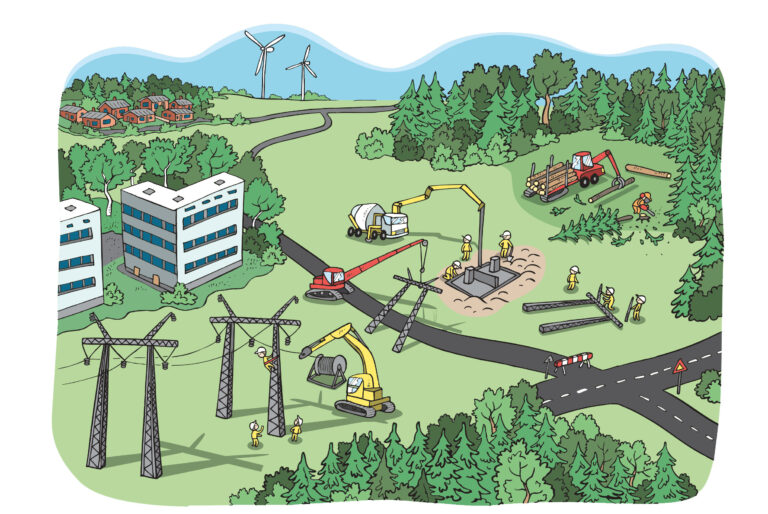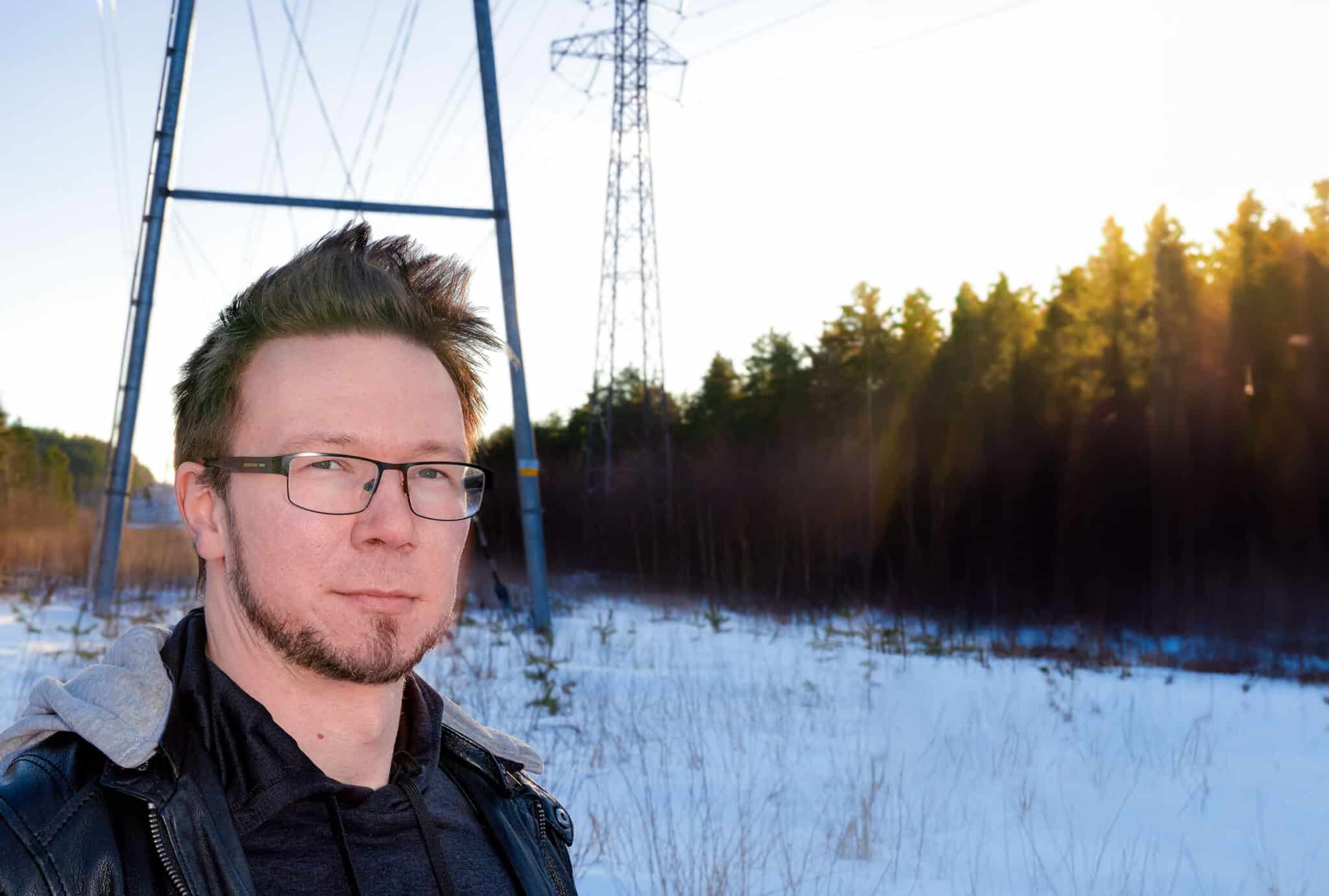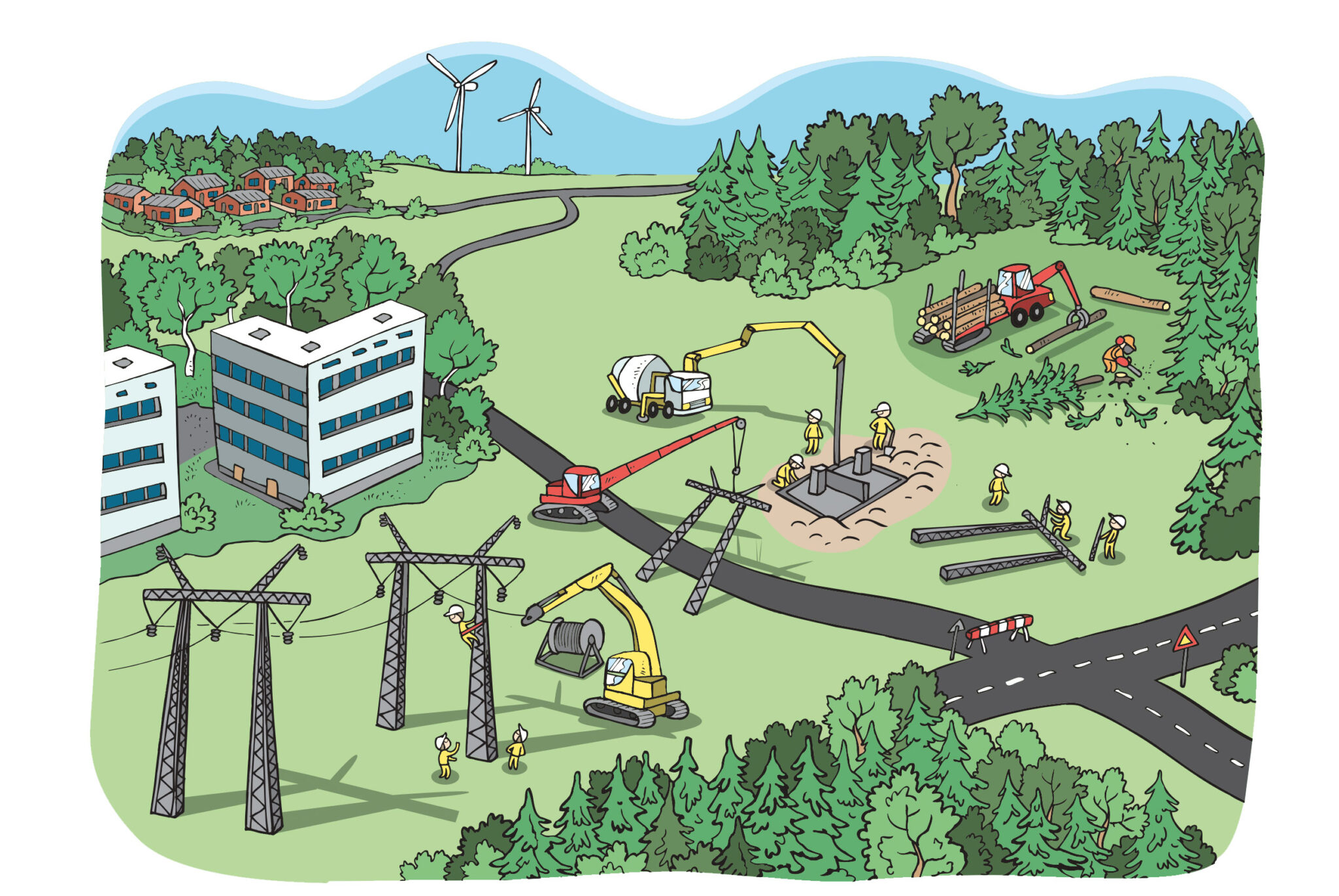Safeguarding the security of supply took on a whole new meaning in the spring when the coronavirus crisis struck and it was necessary to secure the distribution of food and medicines alongside other critical functions in society.
Finland dealt with this sudden test rather well, but there is always room for improvement. The lessons to be learnt from the pandemic are currently being analysed by the Council for Security of Supply and Infrastructure, which is chaired by Jukka Ruusunen, Fingrid’s President & CEO.
“We plan to make proposals for the development of the security of supply function to ensure that Finland is better prepared if a similar situation arises in the future,” he says.
The National Emergency Supply Agency’s new CEO, Janne Känkänen, highlights Fingrid’s role in security-of-supply work.
“The reliable operation of the energy supply – particularly the electricity supply – is a prerequisite for the vital functions of the rest of society. As society trends towards increasing electrification and aims to become carbonneutral, the availability of reliable, sufficient and emission-free electricity is essential,” he says.
In his opinion, the key factors that must be assured are an adequate electricity generation capacity, efficient electricity import connections, and adequate capacity during consumption peaks. It is also necessary to ensure the sufficient availability of balancing power to counteract imbalances between supply and demand.
Getting networks in order while times are good
The Council for Security of Supply and Infrastructure, which was set up by the Government of Finland, has 26 members from among the senior management of the largest companies in the sector, business interest groups, trade unions and ministries.
Ruusunen highlights the importance of close long-term collaboration between the public and private sectors in the security of supply. This ensures that if a crisis occurs, the networks, coordinated division of duties and operating models can be put into action immediately.
“During the coronavirus pandemic, companies were keen to offer help to the public sector in areas such as the procurement of face masks.”
In Ruusunen’s opinion, more attention must be paid to potential disruptions in global supply and value chains in the future. Cooperation is also required to ensure the availability of production and services of essential importance to the security of supply.
“The division of duties between the authorities also needs to be improved. When the pandemic struck, there was a lot of talk of the silo effect where everyone looks after their own duties, but a lot is overlooked. That is why things must be addressed as coherent entities.”
Good practices have been developed in the energy sector
The energy sector has a long history of collaboration in making preparations to combat various disturbances, and operators in the sector can also offer good practices to other areas involved in the security of supply.
“Making preparations for various disturbances is in the DNA of the energy sector. When a fault arises, rectification begins immediately,” says Reima Päivinen, Senior Vice President of Power System Operations at Fingrid.
He chairs the Power Economy Pool, which is the key collaboration forum for the energy sector in matters relating to the security of supply. The Pool, which was established in 1956, conducts preparedness and contingency planning activities involving approximately 300 operators responsible for electricity distribution, energy generation, district heating and energy sector services.
According to Päivinen, the voluntary joint body for collaboration between energy companies and the authorities has proven to be an effective way of ensuring nationwide operational readiness in the power supply under normal conditions as well as in the event of severe disturbances and exceptional circumstances.
“The Power Economy Pool creates situational awareness of the security of supply in its sector, and it proposes the development projects that it deems necessary.”
Practical exercises are important
Känkänen says that Finnish companies and authorities cooperate in many different ways to make preparations related to the security of supply. Examples include the preparation of contingency plans and reports. It is also essential to develop continuity management tools and rehearse things in practice.
“The exercises receive particularly good feedback from participating companies because they allow the functionality and coordination of contingency plans to be simulated.”
In Känkänen’s opinion, the regional Jäätyvä exercises regarding the energy supply were a good example of this. These involve operators from the energy sector as well as authorities and the municipalities in the area selected for the exercise.
“Exercises are arranged in several security-of-supply sectors, and it is important for good
practices to be shared among different sectors,” says Känkänen.
According to Päivinen, the exercises have shown that cooperation is significantly impacted if communications links break down. That is why it is important to plan the coordination of functions and joint operations and to conduct practical exercises in advance.
“It is also important to agree on a division of duties because the subcontracting chains involved in maintaining the power system can be long. In order to rectify technical faults or storm damage, it must be immediately clear who is in charge of resolving the situation.”






